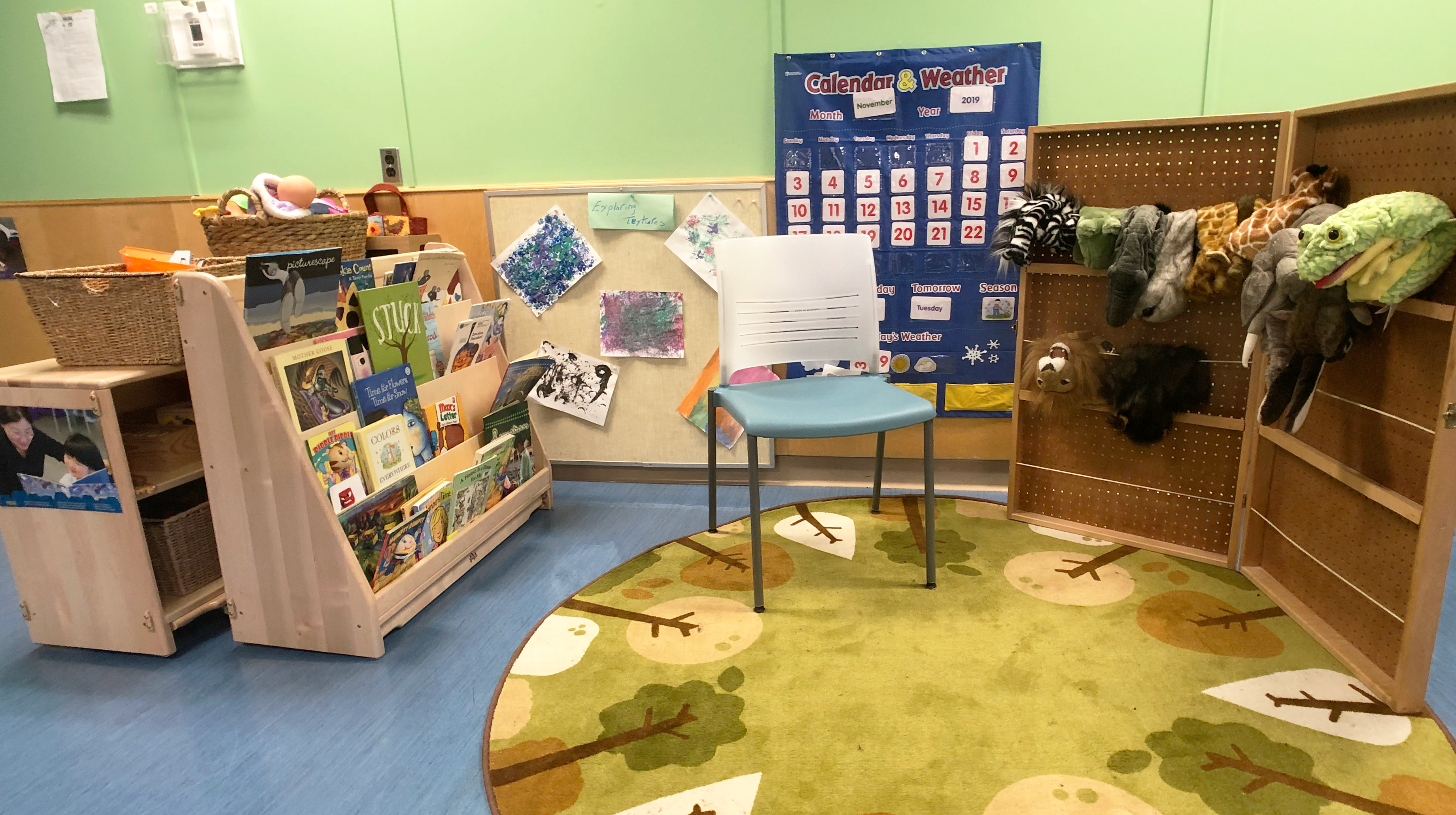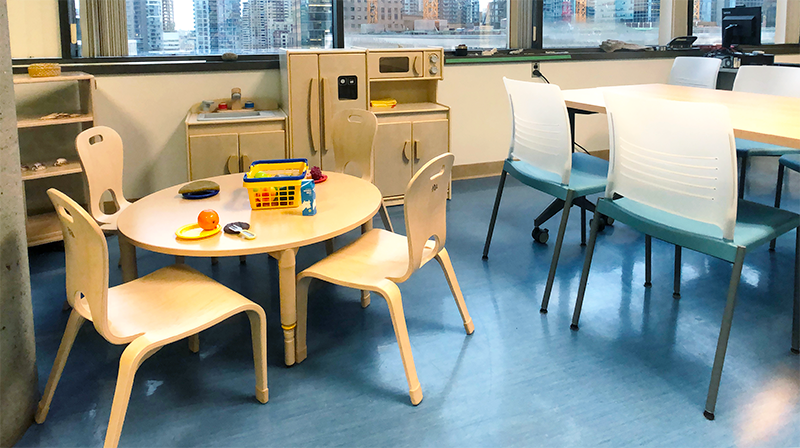Learn by doing in VCC’s dedicated early childhood education space

If you’ve ever watched a small child interact with the space around them, you realize that they’re constantly learning. From hitting blocks together to picking up stones to sticking little fingers where they don’t belong, every action is building knowledge – blocks make noise, stones are heavy, water is wet.
Vancouver Community College’s (VCC) early childhood care and education (ECCE) programs embrace this concept of using the environment as “the third teacher” (known the Reggio Emilia approach), especially in their dedicated Downtown campus learning space.
Formerly a typical classroom, VCC’s ECCE space is split in two, with half composed of four mock learning areas (dramatic play, language and literature, science, and manipulative), and the other half serving as a classroom equipped with tables and chairs that can be moved around as needed.

The setup of the room changes based on the content being taught. Some days, it’s an art studio. Other days, it’s a storytelling circle, a music room, or a science lab.
In an early childhood education setting, such features allow for important elements such as uninterrupted exploration, play, and learning, self-expression, communication, logical thinking, and problem-solving.
VCC’s classroom also contains elements like sinks, cupboards, and bulletin boards that enable other important training for child care providers, including organizing resources, documentation, and working with families.
Is your future in child care? Learn more about the early childhood care and education programs offered via VCC Continuing Studies.
